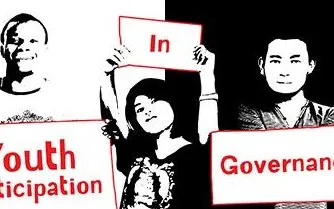
We talk with the youth association Sàhara Dempeus days before their visit to the Tindouf camps in a shared project with International Civil Service and Sahrawi National Radio.
In the year that marks half a century of Sahrawi resistance , we speak with the youth organization Sàhara Dempeus to learn about its trajectory as well as the current situation in the Sahrawi camps. All this, coinciding with its participation in a project with International Civil Service (SCI) and Sahrawi National Radio (RNS) with the aim of contributing to breaking the information blockade and media silence around this conflict through radio.
Since it was founded in Barcelona in 2018, Sàhara Dempeus has been working to strengthen the bonds of solidarity between Catalonia and the Sahrawi resistance movement, becoming a benchmark in youth activism in this field.
We delve into it with the help of one of its members, Clara Jorge , who has been involved in awareness-raising and political advocacy tasks since the beginning of the entity.
Where did the impulse to create the entity come from?
The entity as such was established in 2018, but it emerged from a working group of the Barcelona Youth Council (CJB) that already met regularly for a project around Western Sahara.
What are the main objectives?
Especially raising awareness about the situation of the Sahrawi population and making political impact along these same lines. At times, when there has been the Intergroup for Peace and Freedom with Western Sahara in the Parliament of Catalonia, we have been able to have more impact on this aspect, but it depends a bit on the political moment and whether or not there is a will to put the focus on the Western Sahara conflict.
And in the field of awareness-raising, what types of activities can we see you in?
We have always taken advantage of the spaces that provide us with the opportunity to introduce the theme of the Sahara. For example, at Associa't a la festa, the associative space for the La Mercè festivities, we prepare a series of outreach activities year after year. We also mobilize on dates marked in the Sahrawi calendar, such as February 27th for National Day.
In addition, there have been more specific one-off actions such as the organization of the Catalan Youth Congress for the Freedom of Western Sahara, Xabiba desperta, or a research project in the camps on youth mobilization in 2019.
And what can be drawn from the latter? How should we imagine the collective of Sahrawi youth in the field of associations?
Well, this research was done before the pandemic and before the war returned, which transformed social reality. That is why taking this research as a reference is not entirely valid. Beyond that, there is currently an increase in the political mobilization of Sahrawi youth that translates into a participation of 90% which is almost a dream.
However, we must not forget that there is a fairly significant exodus of young people leaving the camps in search of opportunities beyond the dunes.
From Sahara Standing, together with International Civil Service (SCI), you are preparing a visit to the Tindouf camps for this April. Tell us a little about the context of this visit.
It is part of a project in collaboration with the Sahrawi National Radio (RNS), specifically with Dones per la Llibertat , which is a podcast that has been on the air for a couple of years. The opportunity arose to get to know each other and connect through journalism and see how to work together and how to publicize all this work beyond the borders of the camps.
This radio station was born in the 1970s, but has managed to reinvent itself as a medium for and by young people. Through the podcast format, they have organized themselves to give prominence to young voices with new discourses and a story aligned with the current situation.
They have been able to turn the radio that their grandparents listened to around.
Yes, and also to demonstrate that there are initiatives that can be created from nothing and that can cross borders. Not only because the Women for Freedom podcast can be listened to from everywhere but also because, in the near future, they will be coming to Barcelona to record an episode within the framework of this project that we were discussing.
And I understand that this idea of making yourself heard is very important, right?
Yes, exactly. It is a way to enrich this spirit of struggle and ensure that the Sahrawi people do not feel alone in these almost fifty years of displacement.
What are the challenges you face as an entity?
We are in a moment of rethinking and seeing where we want to go. The territorial dispersion among the members of the entity and the lack of relief are leaving us unable to be present in more actions. The project with SCI and RNS is giving us a break to see how we organize ourselves from a distance and also where we should continue walking.
Shall we make a call from here to all those people or entities who want to get involved?
The more people involved, the more meaningful this project will be and the more impact we will achieve both in Western society and in Sahrawi society itself and we will also be able to guarantee the continuity of the work done by Sahrawi Standing beyond 2016. It can also be very interesting to explore alliances with other entities, as we are doing with SCI, and see how we can incorporate the Sahrawi cause into the organization or project. Welcome all who come, they will meet us with open arms.





Add new comment